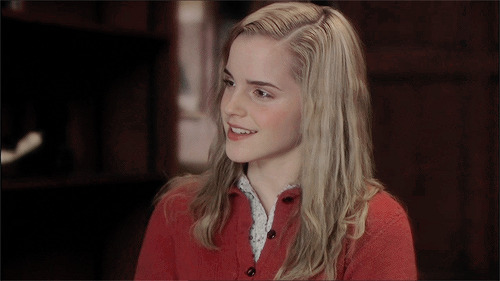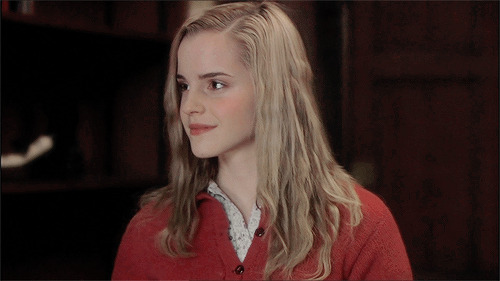#pauline fossil
Text
"And we're back." Linda DuPree smiled into the camera, doing her best to appear natural. "With LaBrea... Uh... Is that your first or last name?"
The camera panned over to Linda's "guest." At first glance she appeared human, though the illusion broke down quickly. The size was the immediate tip-off: nine feet tall, with chalk-white skin and half-feline features.
From her short muzzle a pair of dagger like fangs dipped to just under her jaw. She "wore" an evening gown and opera gloves made of viscous liquid tar, the same material that formed an impossible mane upon her head.
The liquid moved and shifted with a life of its own, and a tendril of her floor-length "tresses" was presently dancing behind Linda like an agitated cobra, dripping rivulets of shimmering black oil that flowed along the ground back into her dress.
"Just LaBrea." Her voice carried an odd mix of valley girl inflection and a Hollywood Count Dracula accent, somehow unimpeded by her tusk-like fangs. "Thank you for asking. And Linda, can I just say that I am so thankful that you had little old me on your show, to get to know all the good people at home?"
"Thank, yes, I would like to-" Linda paused, and gathered herself. "I'd like to thank you, very much, LaBrea, for allowing the paramedics to give Sarah and Pauline transfusions."
"They were deliciously boring, dahling." She smiled. "Not like you. So. What do you want to ask me?"
"Well, what are you?" Linda winced. "Was that rude? I-"
"No, Dahling, you're just timid, frightened, like a little mouse. I like you." LaBrea tapped her chin, the slick mass of tar on her head shifted into a raised secretarial bun, a pair of glasses frames forming on her face, evoking a 'thoughtful' look by way of a fashion photo shoot.
"I'm a sabertooth tigress by death, a vampire professionally, an actress by calling and a Fossil Ghoul in general."
"Lets talk about that last one."
"Oh, acting! I don't have representation yet, but you have seen me on the news! And now here! On the hostage episode of The Squadt with Linda, Sarah, Pauline, and the husk formerly known as Darla!" She made an old fashioned 'call me' gesture into the camera with her tar-dripping claws.
"She'll be fine. I mean... not psychologically, but in a few categories I'm sure."
"I meant lets talk about the Fossil Ghouls. What does that mean?"
"Okay, so, like, I'm sure you've heard all kinds of things from the DynoGuard and their little juicebox pals, no offense."
"None taken."
"Wasn't a request. Like I was saying. You've heard that we're some kind of alien species that feeds on fear that's come here to bring an age of suffering and ultimately extinction upon you all. And I just want to let everyone know that couldn't be further from the truth."
"I, for one am glad to hear tha-"
"Yeah, species implies we reproduce and create life like mortals, which is downright offensive. Also, we feed on all forms of evil that you both commit and suffer, not just fear."
"So what are you then?"
"I'm the bones of a sabertooth cat, a whole lot of tar, a mass of your species superstitions, fears, and desires brought to life with a dark heart."
"A Dark Heart... is that metaphorical-?"
LaBrea plunged a hand into the tar at her hip, digging around in it as it were a pocket, before withdrawing a pulsing crystal the size of a cantaloupe. It was shaped like a human heart, carved crudely out of a sickly amber-yellow crystal. Inside, Linda could see a shadow moving around like a bug in a jar.
"This is a dark heart. Made form the ichor of Apothis herself, and holding a poor little soul that was too wicked to get fully digested after the master's last stop." LaBrea turned to the heart and its tiny shadow. "Who wasn't digested? You weren't, you weren't digested were you? You little atrocity you!"
Linda flinched as the shadow slammed itself against the wall of the heart nearest to her. She couldn't remember what it looked like, only that it had many teeth and claws it ought not to have, and was scrabbling furiously at the crystal in a futile attempt at escape. The camera did not pick up the finer details.
"You need a lot of evil, a lot of entroplasm, to make a little monster like this big and strong enough to be a real Fossil Ghoul." LaBrea said. "So you see, by letting us run roughshod over your world, you're actually helping us thrive. Isn't that fun?"
"You mentioned Apothis... That's the meteor that killed the dinosaurs?"
"Oh sweet little mouse! Apothis comes for everyone eventually. As a civilization gets big, and gets smart, its capacity to both inflict and experience evil swells. And when you're ripe, the monster meteor herself comes to feast, leaving a mass extinction in her wake. Before moving to the next star to do it, and the next, coming back around when your world has a new set of annoying talking matter that knows how to scream and mean it."
LaBrea shook herself from her ravings and regained her perky, if uncanny, posture. "Annoying talking matter and you, Linda. We're besties. Obviously!"
"How, how many times has Apothis done this?"
"To Earth? More than a couple by a few, dahling." LaBrea. "The lizards were the only ones to do something about it, and we'll have them dealt with soon."
"Why are you telling us this?" Linda asked.
"Because, dahling, it won't help. Not knowing, not begging, not even worshiping me." She tilted her head and smiled. Both the tilt and smile went farther than they ought. "Not that you shouldn't do all three anyway. They're fun!"
Linda blinked, unsure of how to respond.
"I mean fun for me." LaBrea grinned into the camera, then took a long, low inhale through her nose. As she did, Linda saw tendrils of smoke roiling from the cameras, the audience, and even herself, rushing into the creature's oddly petite nostrils. The smoke was an impossibly dark and deep purple and it smelled of burning decay.
She could taste the wisps flowing out of her mouth. They tasted like her divorce, her broken leg, her father's funeral-
"Don't turn that dial." LaBrea said in a mocking parody of Darla's voice. "Some of us will be right back after a message from these sponsors."
#dynoguard#the dynoguard#labrea the smilodon#vampire#short fiction#questionably canon#smilodon#battle animal genre
33 notes
·
View notes
Text
...I swear, if I get my hands on Cara Liss, I'll be giving her more than a piece of my mind. Those experiments that created the Galar fossil Pokemon were beyond unethical and I have a few words for...
...Pauline, did you just start recording me again? Darling, give it back. Pauline. PAULINE--
~ Professor Ebony
4 notes
·
View notes
Text
Emma Watson’s best role is Pauline Fossil in Ballet Shoes (2007). Lucy Boynton’s best role is Posy Fossil in Ballet Shoes (2007).
5 notes
·
View notes
Text
Dead Planet
For one of our lectures, guest speaker Pauline Bourdon came in to talk to us about climate change and how we and others can make a difference. The talk started with a video that shows other parts of the world that have had a great negative impact from climate change. The talk continued with Pauline telling us how people help with securing our beautiful world and reduce the amount of fossil fuel and rubbish that causes the world to change. The talk then opened to audiences discussing these issues and how changes could be made with the first unsurprising question being, “how can we help?” this was met with what I thought was quite controversial. “grow your own food” was what we were given and considering most people in that room bar 1 or 2 don’t own a garden but what I thought was just one of many suggestions turned out to be one suggestion which started a debate of how we are told by Pauline “we are responsible for our future” and we “should be doing whatever we can” was hypocritical and a little insulting since climate change has been around for a long time and that everyone else is just as responsible as people who have not been around long. The question I would ask is why is climate change placed and pressured on us when the rest of the world and people before us should be just as responsible? This world is all of our home and should not be placed on the younger generations to be responsible for the world becoming worse.

0 notes
Text
Characters that I belive are aroace (I don’t care about what their authors say, they are aroace for me):
Nico di Angelo (PJO)
All of the Hunters of Artemis (PJO)
Reyna Avila Ramirez Arellano (PJO)
Rachel Elizabeth Dare (PJO)
The Ghost (TCP)
Manon Blackbeak(?) (TOG)
Luna Lovegood (Harry Potter)
Johanna Mason (Hunger Games)
Haymitch Abernathy (Hunger Games)
Effie Trinket (Hunger Games)
Lucien Vanserra (ACOTAR)
Elain Archeron (ACOTAR)
Chaol Westfall (TOG)
Dorian Havilliard (TOG)
Newt (TMR)
Brenda (TMR)
Tam Song (KOTLC)
Biana Vacker (KOTLC)
Elysian <- I don’t even know her but I think she gives off a strong aroace vibe (KOTLC)
Lady Gisela <- she’s married but she only married him because he’s the strongest empath (KOTLC)
Pauline Fossil (Ballet Shoes)
Petrova Fossil (Ballet Shoes)
Posy Fossil (Ballet Shoes)
0 notes
Text
"They blew up the sand to sort it.
Wearing lenses that magnified the world to 360 times its size, they found that sand was not sand anymore, and the thing about the stars in the sky and the grains of sand was more poetic than the ancients could have known. Or did they know? Each piece of sand its own world of color, shape, size, symbol, and meaning. A purple starburst. A green coil. A golden cylinder. As if they had all been made for a different magic.
And so they sorted them, by type. They sifted through. The only use left for the most basic thing they had learned to do. Those who wanted to continue to live that way, to use all the sorting and differentiation instinct they had built up over the years. That's all it was good for at that point. Sorting sand.
What I would have told them if I thought they could listen was the same thing I told anyone who seemed to listen. That of course the sand was visibly different. Sand is what sand is. Tiny remnants of fossils and stones and planets and shells all broken beyond recognition. Unless you look closer, unless you magnify each by 360 degrees, unless you become intimate and positively obsessed, and then you see where they come from, whole in their being. You see more possibilities than you thought you could see.
There is a lesson there about what we had broken down into, and what has not broken us. How similar we look from a distance, how we stay being whatever we came from, what attention does, and what it does not do. How we all become sand in the end."
-- from M Archive: After the End of the World by Alexis Pauline Gumbs
0 notes
Text
By Alexis Pauline Gumbs
I wanted to write a poem about how the extreme heat of the ocean is breaking my heart, but the whales beat me to it. In late July, almost 100 long-finned pilot whales left the deep, usually cold waters where they live—so deep, so cold that scientists have barely been able to study them. Together they came to the coast of western Australia and huddled into a massive heart shape (if your heart were shaped like 100 black whales, like mine is). Then, collectively, they stranded themselves on the shore. As soon as they lost the support of the water, their chest walls crushed their internal organs. They literally broke their hearts. Choreographed under helicopter cameras.
I want to write a poem about how capitalism is a sinking ship and how the extreme wealth-hoarding and extractive polluting systems that benefit a few billionaires are destroying our planet and killing us all. But the orcas beat me to it. Off the Iberian coast of Europe, the orcas collaborated and taught each other how to sink the yachts of the superrich. They literally sank the boats. While Twitter cheered.
The sinking ship is no longer a metaphor. The broken heart is no longer a metaphor. Who needs a metaphor in times as hot and blunt as ours? Let’s make it plain.
Marine mammals have been my poetry teachers for several years now. In Undrowned: Black Feminist Lessons From Marine Mammals, I documented my awe and wonder at how these animals do, with grace, what I flail at every day, breathing in the unbreathable circumstances of global racial capital, racist sexist ableist systemic violence.
Living on a planet with rapidly rising ocean levels, it seems obvious to me that we should pay attention to our closest relatives in the sea. But now sea lions, whales, and other marine mammals are leaving the ocean, confronting beachgoers and boaters, making themselves impossible to ignore.
My theory? With a boost from our faster communication technology and crowdsourced worldwide media to spread the news, marine mammals are coming up out of the ocean, as they have been for decades, to tell us it’s too damn hot. And why do we matter so much? Why should we be so arrogant as to assume marine mammals are telling us anything? The answer is in the question: because it’s our fault.
You know this already. Carbon emissions from fossil fuels, disproportionately burned by corporations and first-world consumers, are drastically heating the planet, causing extreme weather events, raising the temperature of the ocean and the water levels and impacting every species that has adapted to what author Jeff Goodell calls “the Goldilocks zone” of survivable temperatures in his book The Heat Will Kill You First, published last month. Alarmingly, a study this summer estimated a 95 percent chance that the entire system of currents that keep the Atlantic Ocean and every ecosystem it touches in relative balance (i.e., the Gulf Stream and other currents) will collapse as soon as 2025. Drastically. Extreme. Alarmingly. I have to use adverbs and adjectives to emphasize what I am saying here because I haven’t learned yet how to break my Black heart a hundredfold on a beach where everyone can see it. I haven’t taught my friends and family to intentionally sink the most useless ships.
Since what I have to offer are words, I will continue to write in extremes. For example, in Undrowned I suggested that because of the impact of rising temperatures on the Gulf Stream, we are living on a menopausal planet. The whole Earth is going through what my elders cryptically called “the change.” In this midst of this heat wave, which has led to at least one of my cherished Black feminist elders spending a night in the emergency room, I’m even more convinced.
Let me be clear: “Living on a menopausal planet” does not mean the extreme heat we are experiencing is just a natural part of Earth’s life cycle, as climate-change deniers claim. The volatile temperatures we are experiencing are a result of toxic human actions—just like the hot flashes experienced by menopausal people (many women, many gender-expansive people, anyone who has ever had a uterus or ovaries or stewarded the hormone estrogen) may be impacted by the prevalence of hormone-injected animals and processed food in our diets.
Yesterday, my big-sister mentor, the menopause expert and reproductive justice advocate Omisade Burney-Scott, taught me that the heat menopausal people experience can also be impacted by the long-studied relationship between estrogen and cortisol, the stress hormone; and that for oppressed groups of people—who, as a study at Yale recently confirmed, experience higher cortisol levels triggered by systemic violence against themselves and their communities—volatile body temperatures and other menopause systems can be heightened. The Study of Women’s Health Across the Nation has confirmed that women of color are experiencing more volatile hot flashes because of these and other factors. I wonder if the “climate anxiety” we are collectively experiencing is increasing cortisol levels, too. Scientific studies will have to work that out. If the heat doesn’t kill us first.
Whereas menopause—in which a body moves beyond a central need for estrogen—is natural, inevitable, volatile symptoms like extreme hot flashes actually are not. Similarly, while change is inevitable for this planet and all life, the heat we are now experiencing is not. It is the result of toxic systems that are putting stress on every one of Earth’s ecosystems at the same time.
I think menopause is a powerful lens through which to look at this hot planetary crisis, and not only because I am a Black woman in my early 40s with menopause in my imminent future. It is also because our most effective poets, the whales, are the other beings on Earth who also experience menopause. Orcas and pilot whales specifically are two of the four species of toothed whales in which the scientific community has identified and studied menopause. (Note that pilot whale studies have focused on the short-finned pilot whales who live in shallow water—and have also performed mass strandings over the past decade—while the long-finned pilot whales who live in deeper water have mostly evaded scientific study. And good for them!)
Orca and pilot whale communities have both also demonstrated that they follow the leadership of what even the scientist poets call “matriarchs,” the elder mothers, past their years of possibly giving birth. Kate Sprogis, a marine biologist at the University of Western Australia, theorized that it may have been that the 97 long-finned pilot whales who died on the beach followed a grandmother to shore. What if instead of imagining they died because of her mistake, we imagine they participated in her protest? Biologists keeping track of the orcas who are sinking boats trace the training practice to White Gladis, an orca grandmother. Is it possible these whale leaders learned what they learned, decided what they decided, taught what they taught during menopause? And if so, so what?
Omisade Burney-Scott suggests menopause is a ceremony, a liminal space, a space of possibility. “During liminal periods of transformation,” she writes, “social hierarchies may be reversed or even temporarily dissolved. The constancy of cultural traditions can become uncertain, and future outcomes once taken for granted may be thrown into doubt.”
I think about Fannie Lou Hamer, victim of a forced hysterectomy, and Ella Baker in her wise years creating the Mississippi Freedom Democratic Party and audaciously pushing forward a civil rights agenda in the center of white supremacist violence in the 1960s. I think about Harriet Tubman’s audacity; I think about the upheaval caused by Dominican labor activist Mamá Tingó’s sugar plantation strikes. What did experiencing a drastic change in their bodies teach these community mothers about the possibility of change on the scale of our entire society?
What if we live on a menopausal planet, where underneath this heat, we are supposed to be learning something about change? What if this is where and when we collectively find the wisdom and maturity that comes from letting go of the story about what we are producing, and moving to the eldership vision of what is sustainable for all of us collectively? What if menopause is the greatest undersung gift? The experience that grants us a multigenerational, multi-species consciousness we need. And what are the words that could reach you and get you to join me in trusting the bravest among us, leaders accountable to multiple generations, who have lived long enough to know what is worth risking and when to risk it? Where is my maturity? When will I stop mistaking the excess heat of a toxic system of relations for love? Where else in my life is heat a warning? How can we stop dissociating from what is happening to our largest body, this planet? Is that your chest collapsing or the rainforest burning? What am I sacrificing to try to earn a premium spot on a sinking ship? Is that your breaking heart or an iceberg shattering? And how cool would it be if none of this were a metaphorical? Oh, relief to your furrowed brow, peace to your steaming blowhole. How cool would it be if we followed our teachers and lived what love requires?
0 notes
Text
By Alexis Pauline Gumbs
I wanted to write a poem about how the extreme heat of the ocean is breaking my heart, but the whales beat me to it. In late July, almost 100 long-finned pilot whales left the deep, usually cold waters where they live—so deep, so cold that scientists have barely been able to study them. Together they came to the coast of western Australia and huddled into a massive heart shape (if your heart were shaped like 100 black whales, like mine is). Then, collectively, they stranded themselves on the shore. As soon as they lost the support of the water, their chest walls crushed their internal organs. They literally broke their hearts. Choreographed under helicopter cameras.
I want to write a poem about how capitalism is a sinking ship and how the extreme wealth-hoarding and extractive polluting systems that benefit a few billionaires are destroying our planet and killing us all. But the orcas beat me to it. Off the Iberian coast of Europe, the orcas collaborated and taught each other how to sink the yachts of the superrich. They literally sank the boats. While Twitter cheered.
The sinking ship is no longer a metaphor. The broken heart is no longer a metaphor. Who needs a metaphor in times as hot and blunt as ours? Let’s make it plain.
Marine mammals have been my poetry teachers for several years now. In Undrowned: Black Feminist Lessons From Marine Mammals, I documented my awe and wonder at how these animals do, with grace, what I flail at every day, breathing in the unbreathable circumstances of global racial capital, racist sexist ableist systemic violence.
Living on a planet with rapidly rising ocean levels, it seems obvious to me that we should pay attention to our closest relatives in the sea. But now sea lions, whales, and other marine mammals are leaving the ocean, confronting beachgoers and boaters, making themselves impossible to ignore.
My theory? With a boost from our faster communication technology and crowdsourced worldwide media to spread the news, marine mammals are coming up out of the ocean, as they have been for decades, to tell us it’s too damn hot. And why do we matter so much? Why should we be so arrogant as to assume marine mammals are telling us anything? The answer is in the question: because it’s our fault.
You know this already. Carbon emissions from fossil fuels, disproportionately burned by corporations and first-world consumers, are drastically heating the planet, causing extreme weather events, raising the temperature of the ocean and the water levels and impacting every species that has adapted to what author Jeff Goodell calls “the Goldilocks zone” of survivable temperatures in his book The Heat Will Kill You First, published last month. Alarmingly, a study this summer estimated a 95 percent chance that the entire system of currents that keep the Atlantic Ocean and every ecosystem it touches in relative balance (i.e., the Gulf Stream and other currents) will collapse as soon as 2025. Drastically. Extreme. Alarmingly. I have to use adverbs and adjectives to emphasize what I am saying here because I haven’t learned yet how to break my Black heart a hundredfold on a beach where everyone can see it. I haven’t taught my friends and family to intentionally sink the most useless ships.
Since what I have to offer are words, I will continue to write in extremes. For example, in Undrowned I suggested that because of the impact of rising temperatures on the Gulf Stream, we are living on a menopausal planet. The whole Earth is going through what my elders cryptically called “the change.” In this midst of this heat wave, which has led to at least one of my cherished Black feminist elders spending a night in the emergency room, I’m even more convinced.
Let me be clear: “Living on a menopausal planet” does not mean the extreme heat we are experiencing is just a natural part of Earth’s life cycle, as climate-change deniers claim. The volatile temperatures we are experiencing are a result of toxic human actions—just like the hot flashes experienced by menopausal people (many women, many gender-expansive people, anyone who has ever had a uterus or ovaries or stewarded the hormone estrogen) may be impacted by the prevalence of hormone-injected animals and processed food in our diets.
Yesterday, my big-sister mentor, the menopause expert and reproductive justice advocate Omisade Burney-Scott, taught me that the heat menopausal people experience can also be impacted by the long-studied relationship between estrogen and cortisol, the stress hormone; and that for oppressed groups of people—who, as a study at Yale recently confirmed, experience higher cortisol levels triggered by systemic violence against themselves and their communities—volatile body temperatures and other menopause systems can be heightened. The Study of Women’s Health Across the Nation has confirmed that women of color are experiencing more volatile hot flashes because of these and other factors. I wonder if the “climate anxiety” we are collectively experiencing is increasing cortisol levels, too. Scientific studies will have to work that out. If the heat doesn’t kill us first.
Whereas menopause—in which a body moves beyond a central need for estrogen—is natural, inevitable, volatile symptoms like extreme hot flashes actually are not. Similarly, while change is inevitable for this planet and all life, the heat we are now experiencing is not. It is the result of toxic systems that are putting stress on every one of Earth’s ecosystems at the same time.
I think menopause is a powerful lens through which to look at this hot planetary crisis, and not only because I am a Black woman in my early 40s with menopause in my imminent future. It is also because our most effective poets, the whales, are the other beings on Earth who also experience menopause. Orcas and pilot whales specifically are two of the four species of toothed whales in which the scientific community has identified and studied menopause. (Note that pilot whale studies have focused on the short-finned pilot whales who live in shallow water—and have also performed mass strandings over the past decade—while the long-finned pilot whales who live in deeper water have mostly evaded scientific study. And good for them!)
Orca and pilot whale communities have both also demonstrated that they follow the leadership of what even the scientist poets call “matriarchs,” the elder mothers, past their years of possibly giving birth. Kate Sprogis, a marine biologist at the University of Western Australia, theorized that it may have been that the 97 long-finned pilot whales who died on the beach followed a grandmother to shore. What if instead of imagining they died because of her mistake, we imagine they participated in her protest? Biologists keeping track of the orcas who are sinking boats trace the training practice to White Gladis, an orca grandmother. Is it possible these whale leaders learned what they learned, decided what they decided, taught what they taught during menopause? And if so, so what?
Omisade Burney-Scott suggests menopause is a ceremony, a liminal space, a space of possibility. “During liminal periods of transformation,” she writes, “social hierarchies may be reversed or even temporarily dissolved. The constancy of cultural traditions can become uncertain, and future outcomes once taken for granted may be thrown into doubt.”
I think about Fannie Lou Hamer, victim of a forced hysterectomy, and Ella Baker in her wise years creating the Mississippi Freedom Democratic Party and audaciously pushing forward a civil rights agenda in the center of white supremacist violence in the 1960s. I think about Harriet Tubman’s audacity; I think about the upheaval caused by Dominican labor activist Mamá Tingó’s sugar plantation strikes. What did experiencing a drastic change in their bodies teach these community mothers about the possibility of change on the scale of our entire society?
What if we live on a menopausal planet, where underneath this heat, we are supposed to be learning something about change? What if this is where and when we collectively find the wisdom and maturity that comes from letting go of the story about what we are producing, and moving to the eldership vision of what is sustainable for all of us collectively? What if menopause is the greatest undersung gift? The experience that grants us a multigenerational, multi-species consciousness we need. And what are the words that could reach you and get you to join me in trusting the bravest among us, leaders accountable to multiple generations, who have lived long enough to know what is worth risking and when to risk it? Where is my maturity? When will I stop mistaking the excess heat of a toxic system of relations for love? Where else in my life is heat a warning? How can we stop dissociating from what is happening to our largest body, this planet? Is that your chest collapsing or the rainforest burning? What am I sacrificing to try to earn a premium spot on a sinking ship? Is that your breaking heart or an iceberg shattering? And how cool would it be if none of this were a metaphorical? Oh, relief to your furrowed brow, peace to your steaming blowhole. How cool would it be if we followed our teachers and lived what love requires?
0 notes
Text
Oligoptilomera luberonensis, nouveau genre, nouvelle espèce, premier représentant fossile d'une sous-famille de punaises d'eau, vient d'être décrit et illustré à partir de l'Oligocène de Murs (Vauc...
The first fossil representative of the water strider subfamily Ptilomerinae (Heteroptera: Gerromorpha: Gerridae) in the Oligocene paleolake of Murs (southern France) with some palaeoecological considerations
André NEL, Bastien MENNECART, Tamara SPASOJEVIC, Alexandra VIERTLER, Olivier MARIDET, Loïc COSTEUR, Romain GARROUSTE & Pauline COSTER
en European Journal of Taxonomy 888 (124) - Pages 124-136
Publié le 15 août 2023
Oligoptilomera luberonensis gen. et sp. nov., first fossil representative of the gerrid subfamily Ptilomerinae, is described and figured from the Oligocene of Murs (Vaucluse, Southern France).
Extant Ptilomerinae live in streams in warm climates, of the Indo-Malaysian, eastern Palaearctic, and Papouan regions. The discovery of this Oligocene French Ptilomerinae is in accordance with the putative age of the subfamily, at least older than the Eocene, and with the Indo-Malaysian affinities previously recorded for some other insects from the Oligocene of France.
The two insect assemblages of Murs and Céreste are compared and the differences discussed. Although of similar ages, that from Murs was possibly corresponding to a more shallow water paleolake than that of Céreste.
0 notes
Text
Ballet Shoes by Noel Streatfeild (9/7/20)
Great Uncle Matthew, also known as GUM, loves to go on fossil-hunting trips. On these trips, he adopts three small girls; Pauline, Petrova, and Posy. The sisters take the surname fossil due to Gum's love of his trips. The girls vow to each other that they will put the name Fossil in the history books. Each of them has their own special talents that they are known for. They will use their talents to keep their vow to each other and make their name known.
Genre: classic children's fictionFormat: audio library book from LibbyMy star rating: ⭐⭐⭐
This was a sweet and fun listen! The version I had listened to was a BBC production with multiple narrators for each character. It was a cute story, one that I have never read before. It's definitely one I can see myself reading to our future children.
0 notes
Text
Assistir Filme Dançando Para a Vida Online fácil
Assistir Filme Dançando Para a Vida Online Fácil é só aqui: https://filmesonlinefacil.com/filme/dancando-para-a-vida/
Dançando Para a Vida - Filmes Online Fácil

Baseado em obra homônima de Noel Streatfeild, é ambientado na década de 1930 em Londres. É a história das órfãs Pauline, Petrova e Posy Fossil, que são adotadas pelo excêntrico explorador Professor Matthew Brown, e criadas por Sylvia, sua sobrinha altruísta. Quando o Professor desaparece, Sylvia tenta dar conta das despesas alugando quartos para hóspedes cujos atos mudarão suas vidas para sempre. As garotas são matriculadas na escola de teatro e começam a trabalhar nos palcos. Isso combina com os desejos da ambiciosa Pauline, que está ansiosa para atuar, e com a vontade de Posy, uma dançarina nata, mas Petrova, que deseja ser aviadora, sofre com a frustração e o desapontamento. As irmãs juram “colocar seus nomes nos livros de história” e esse desejo mantém a família unida a qualquer preço. A vida no mundo do show business é bem-sucedida, mas corações são partidos e lições aprendidas nesta encantadora história.
0 notes
Note
hi, can you make lockscreens from the movie ballet shoes, please? thanks! ♡

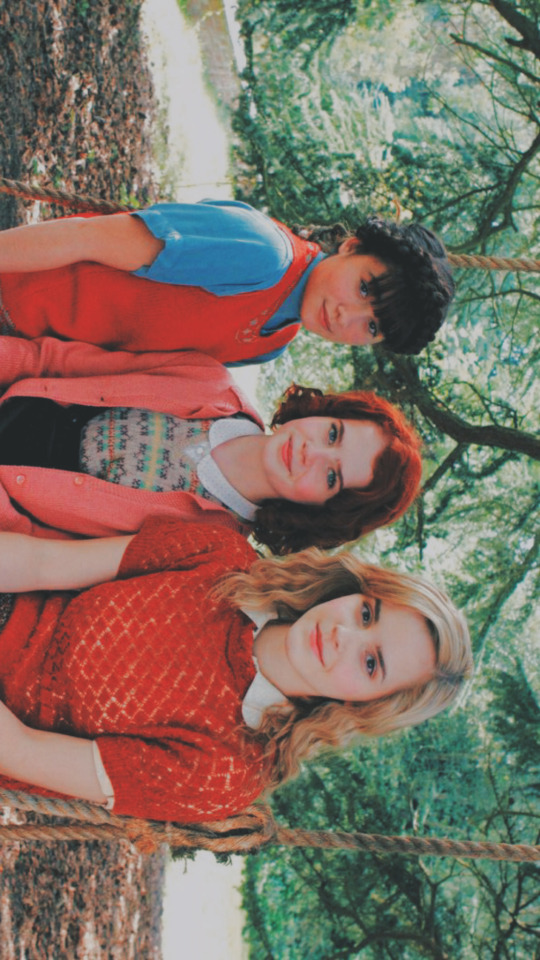

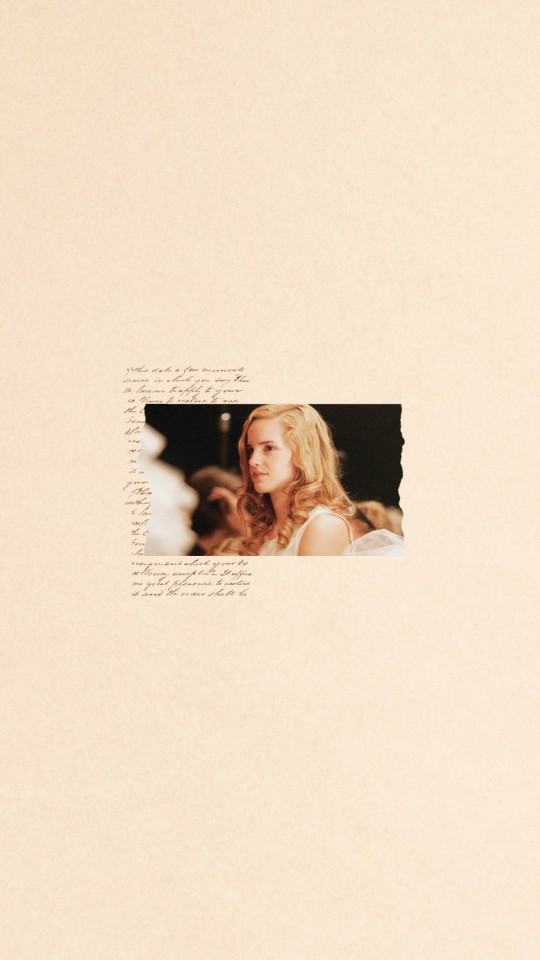
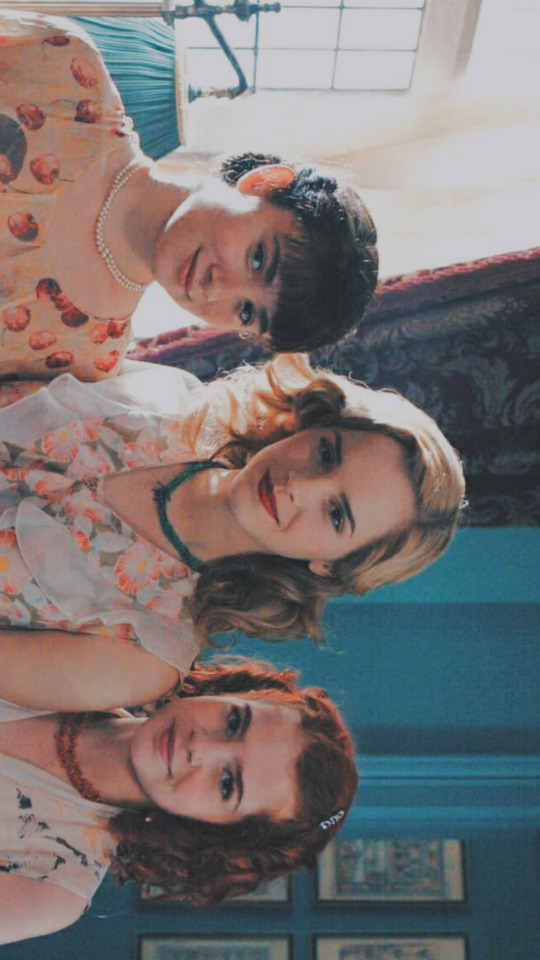

it was hard for me to find pictures of this movie, but i hope you'll like it!
please like/reblog if you save!
my lockscreens masterlist
#ballet shoes#ballet shoes movie#pauline fossil#petrova fossil#posy fossil#emma watson#yasmin paige#lucy boynton#lockscreens#wallpapers#requested
37 notes
·
View notes
Text

Ballet Shoes (2007) dir. Heidi Thomas
#ballet shoes 2007#ballet shoes#noel streatfeild#emma watson#pauline fossil#period drama#perioddramaedit#curls#blonde#tutu#ballet class#1930s fashion#1930s hair#1930s aesthetic#1930s#white dress#ballet aesthetic#ballet#pink lips#dance#dancing#emmawatsonedit#source: historical beauty lily
197 notes
·
View notes
Note
(📚~ please and thank you, angel... ♡)









"When I watch you reciting Puck, I don't see Pauline Fossil, schoolgirl. I see a queer, mercurial woodland creature."
Pauline Fossil from 'Ballet Shoes', by Noel Streatfield
Alice, and absurd Wonderland; sweet servant of the Fairy Queen; far more than her dainty features or golden curls, she valued her ability to go beyond Pauline. She breathed as a noblewoman of centuries past; the stage, and the theatre, were a second world; but as easily as she empathised with mischievous Puck, she felt the hearts of other girls. With delicacy that would preserve even her softest frocks, in a world with enough sharp edges to shred a flower, she kept kindness and humility in her heart, so that applause should never hear sour. She pledged sisterhood; and more than she ever meant Puck, she meant it.
no problem at all; I hope you enjoy it!
send me a 📚 if you want a poem written for a character from folklore, mythology or classic literature that your blog reminds me of!
#poetry#poems#poem#quotes#quote#pauline fossil#ballet shoes#noel streatfeild#ballet#ballet aesthetic#theatre#alice in wonderland#alice aesthetic#pink aesthetic#pink and white#theater#a midsummer night's dream#shakespeare plays#shakespeare#lewis carroll#classic literature#literary classics#literature#spilled ink#spilled poem#spilled ideas#spilled love#spilled work#spilled poetry#spilled writing
28 notes
·
View notes
Photo





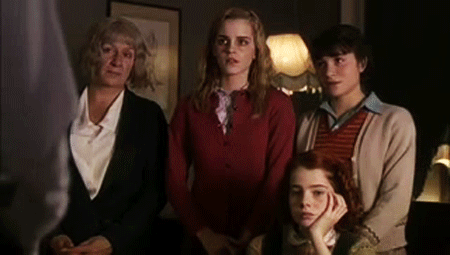




Petrova Fossil from Ballet Shoes
Pictures not mine
#posy fossil#silvia gaunt#pauline fossil#emmawatson#emma watson#lucy boyton#emilia clarke#emilia fox
24 notes
·
View notes
